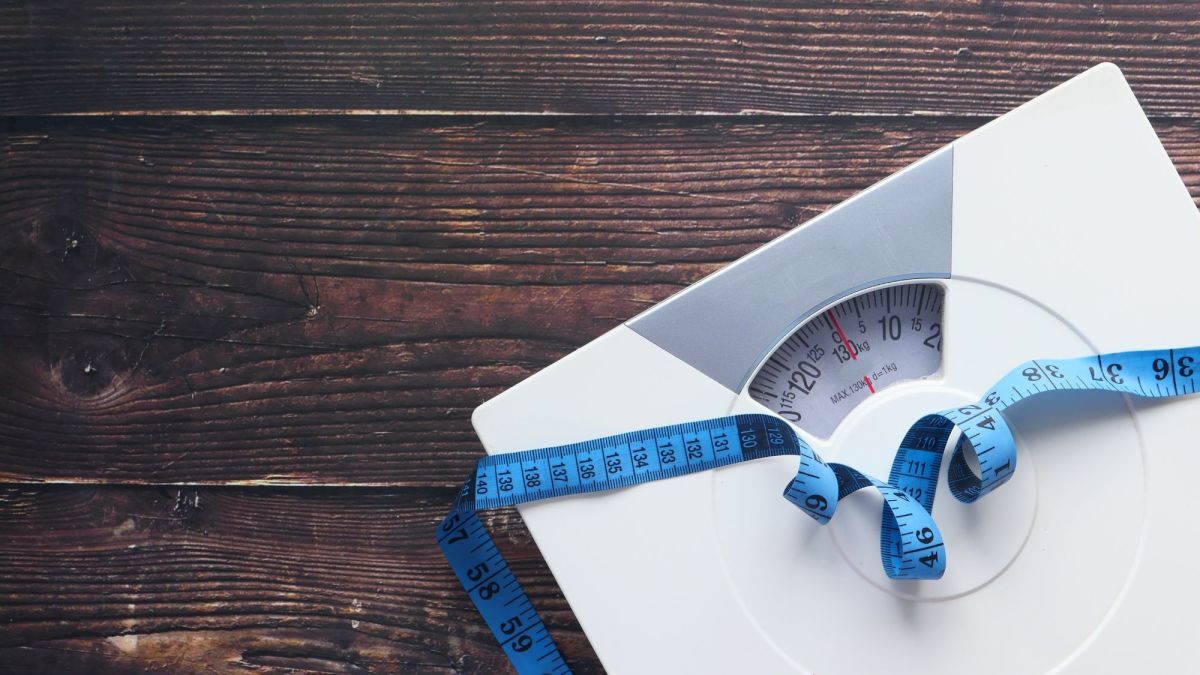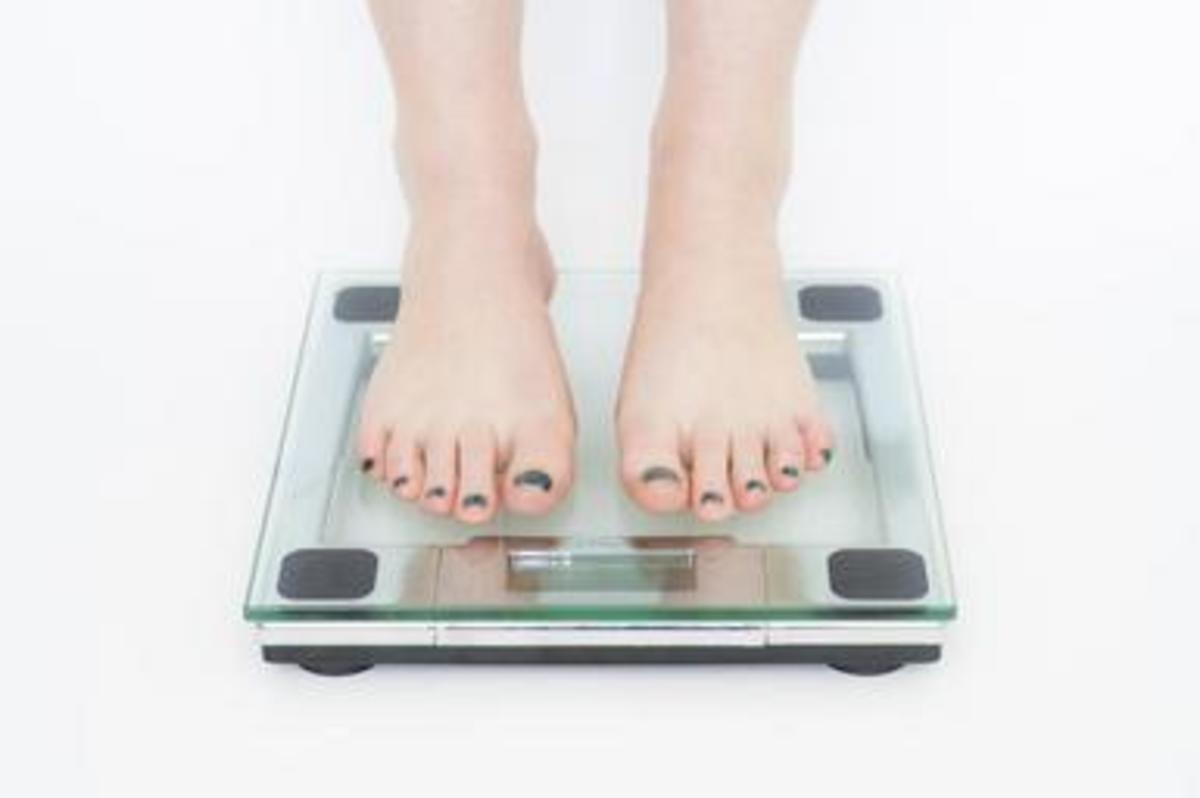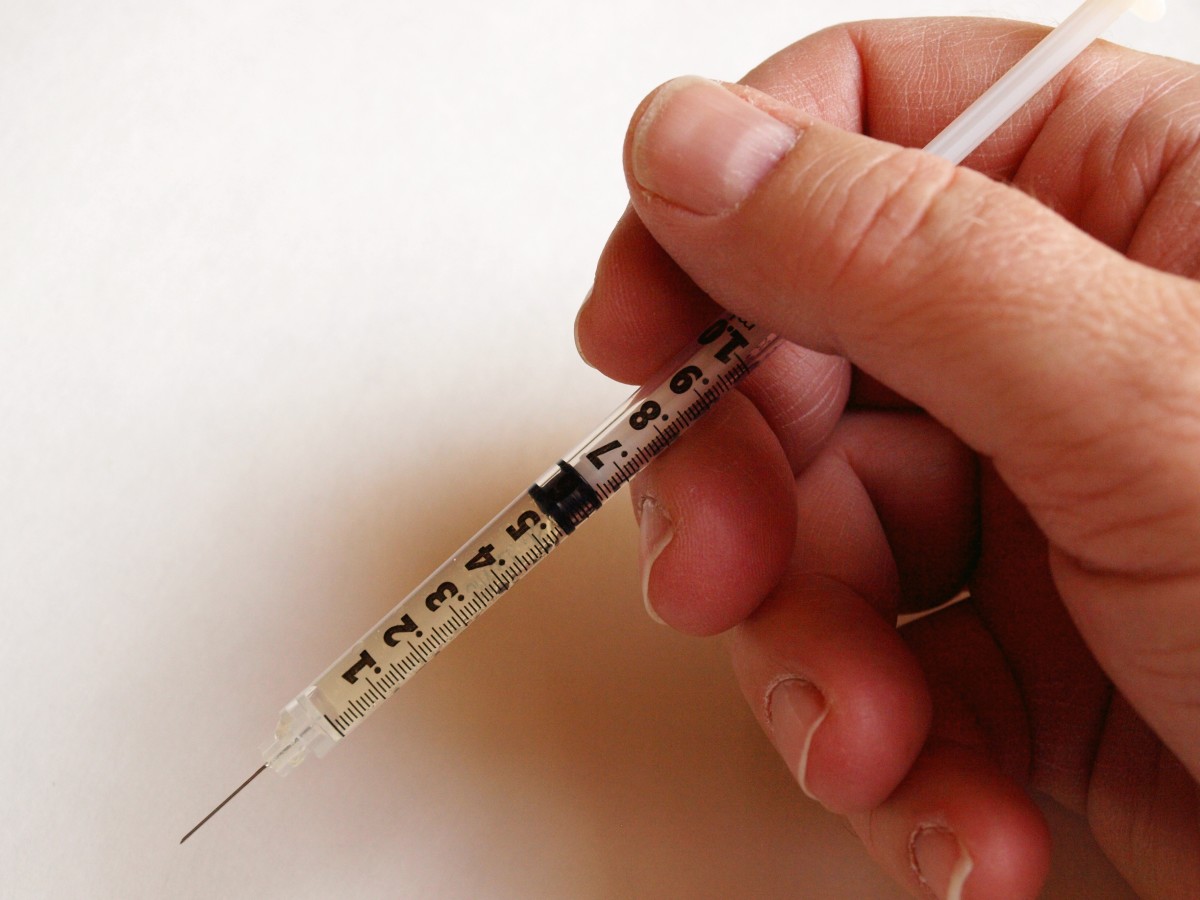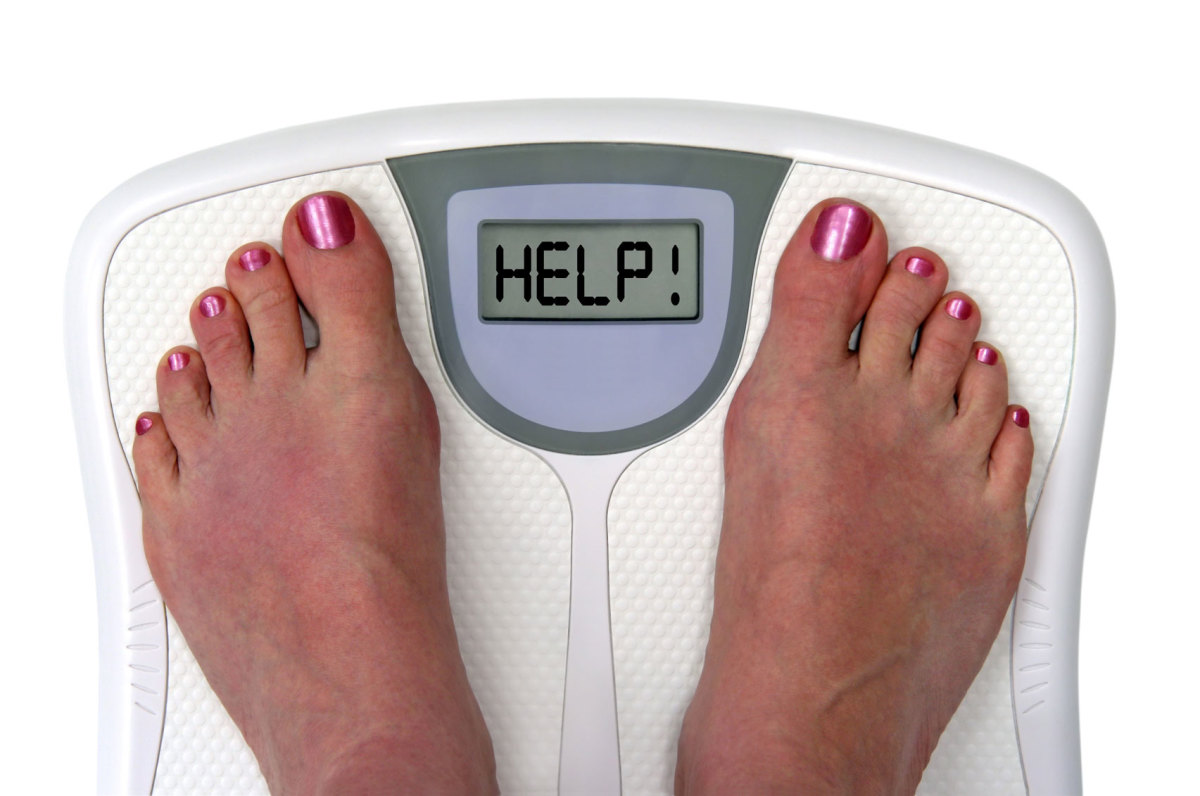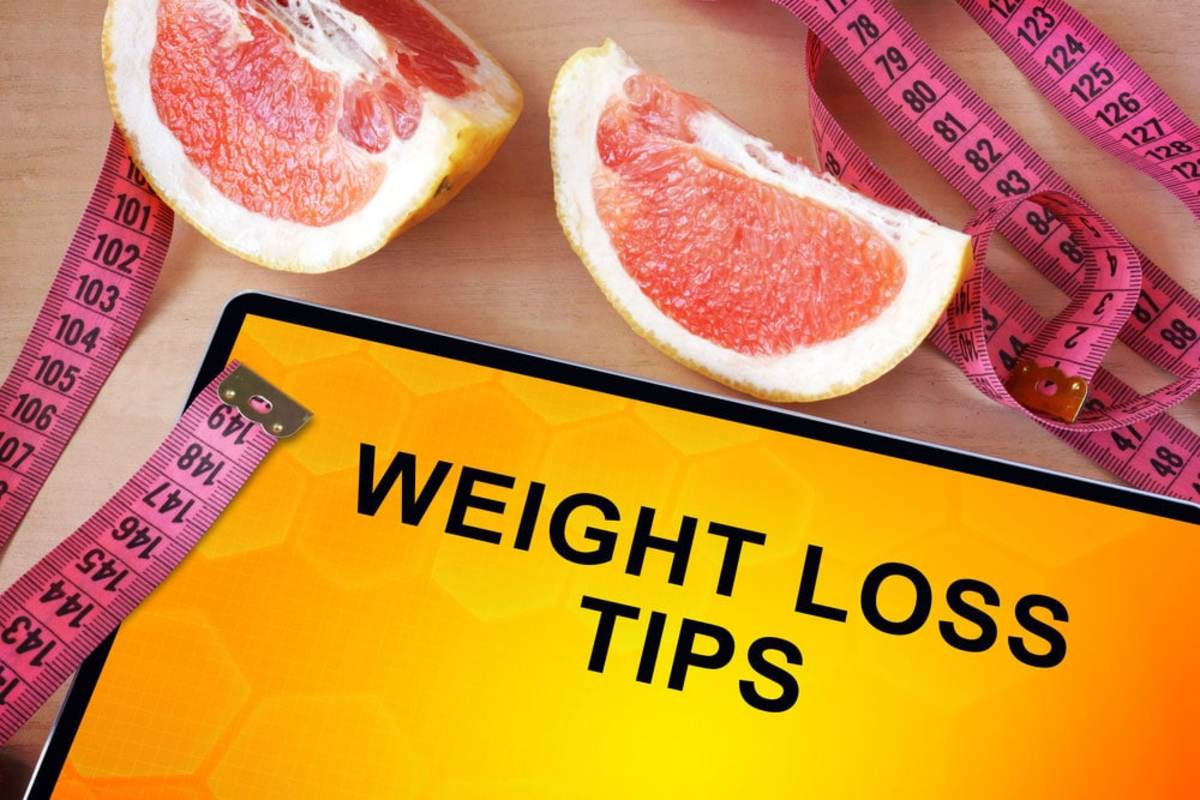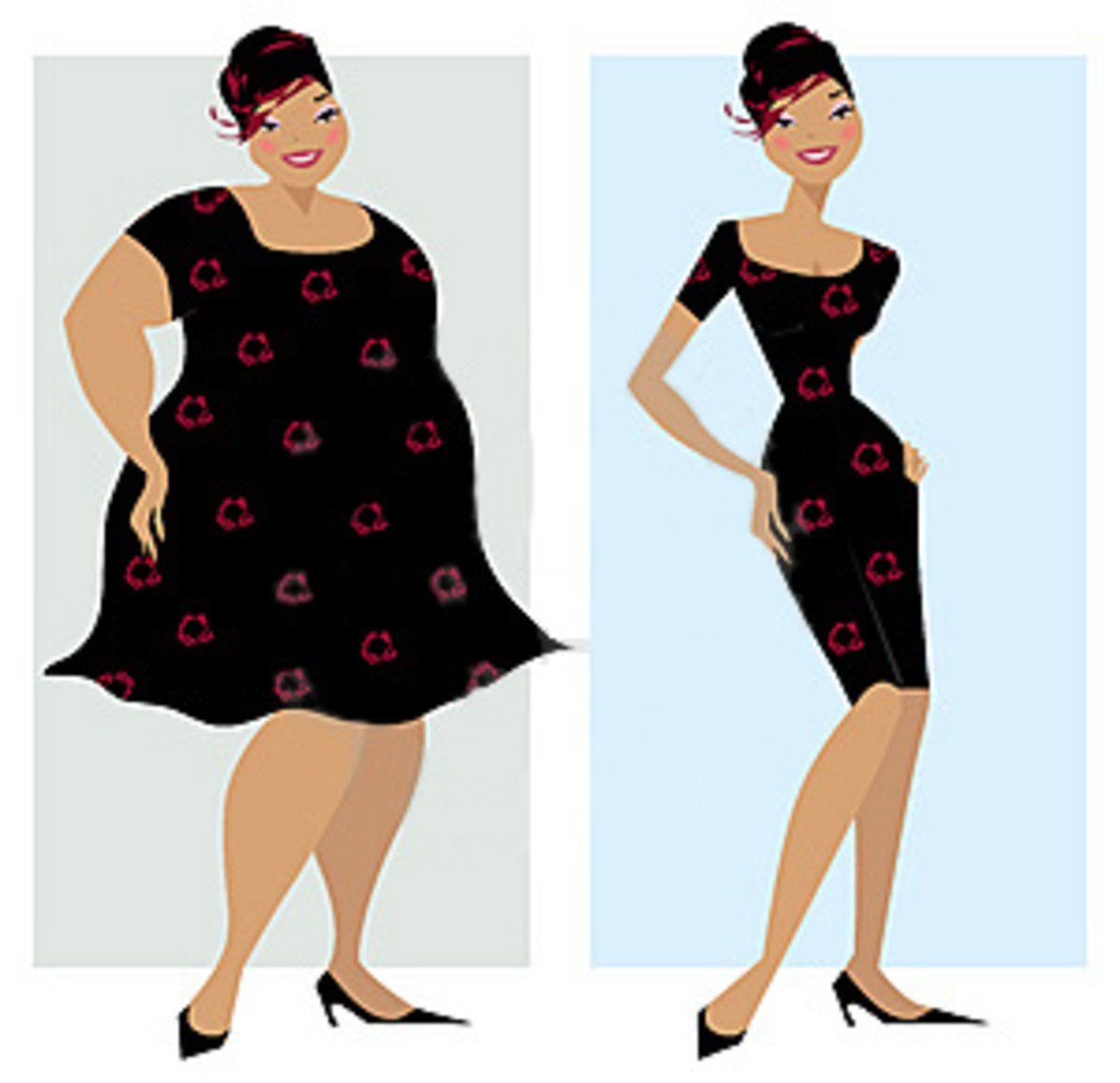Weight Loss Tips
Weight Loss Tips
It quite often happens that weight loss tips are readily sought after by many people in the endless search for a lighter body, but do any of them really work in the long term? Are the methods and programs that are available safe to use? Are certain diets even dangerous? How can you tell the difference between what works and what doesn't work?
This hub is a weight loss resource of a different nature. These and questions like them are asked by many people considering losing weight and they need answers.
Not the usual repository of recycled weight loss or diet information, but more a bringing into question the true effectiveness of the fad diets and whether any of them are really any good for you.
Maybe its not what people want to hear, but it needs saying just the same.

Diets and Why They Don't Work
You can follow this link to find a comprehensive list of diets. Then delete it! Why? Very few diets exist that will cause a person to lose weight and then keep that weight off indefinitely. There is a very good reason for that and I'm going to tell you why.
In the most basic form, a human body needs the correct amount and quality of nourishment in order to function normally. We get that nutrition from the food we eat. We have a built in program that tells us that we need to eat in order to survive and that program is instinct. Without it we would forget to eat and starve. We instinctively know what foods and how much of them we need to survive. In our distant past, our ancestors were never sure where the next meal was coming from, so we, like any other animal, have a system where we can eat far more than we currently need when food is plentiful and anything we eat that is in excess of what we need will be stored for times when food is not available.
This is simply a survival mechanism and a natural process we all go through. Unfortunately for modern humankind, especially in countries where there is generally always more than enough food to go around, we don't have those times of lack, so when we eat more than we need it gets stored up and keeps getting stored up for those times of no food that are not going to happen.
The end result is that we put on more weight than we need and if we don't curb our food intake or balance it with enough exercise to burn off the excess, then the next stage is obesity.
So where does that leave us with diets?
When we diet, whatever the flavour of the month diet may be, we restrict our intake of food, mimicking the times our ancestors would have known as lean times where there was no food. Our bodies then burn off the excess we have stored up and we lose weight. It is a natural process and effective in the short term.
But then what happens?
Either a person has an iron will and is able to stick to the amount of food intake that will keep their body's weight in perfect balance, or more likely they will return to old eating habits and the body goes back into its "preparedness for the next period of starvation" mode and starts storing up the excess again. Back comes the weight and we return to square one!
Then we go for another diet, because the first one "didn't work"!
And the process repeats itself. Which is why diets actually do work, its just that the people don't stick to them, meaning they, in essence, don't work!
While you're getting your head around that conundrum, I'll take a break!
What Needs to Happen to Lose Weight Safely?
What needs to happen for you to begin to actually lose weight?
Well, the first and most important thing is you need to move. I don't mean move house, I mean move your body! If that seems a little too obvious or simplistic, then in reality, it is! Your body needs to move and move quite a lot in order for your metabolism to speed up.
If you have a slow metabolism due to an inactive lifestyle, for instance spending hours lounging in front of the television and letting your life drift past you, then you need to change your habits and get up and move about some more!
Writers who sit for hours in front of their computers, like those of us who create these hub pages for instance, also need to get up every so often and move around to get the circulation moving and the metabolism reminded of what it is supposed to do!
Being inactive for long periods of time (apart from when sleeping - that doesn't count!) causes your metabolism to slow down to compensate for the fact that you don't need as much nourishment. That's because your muscles are not being used like they should be. While muscle density decreases, the amount of fat your body stores up increases. At first you don't notice any difference in weight because muscle cells are much heavier than fat cells. So you may even lose a little weight to begin with as muscle density is lost even while fat levels increase. What you do notice is that your body starts to lose it tone and you get flabby.
Eventually you'll get to the point where the weight starts to increase as the amount of fat stored up in your body increases more and more.
If you don't do anything about it, obesity city awaits!
That's why you need to move around more. Go for walks - walk the dog if you have one! Do some strenuous exercise but not too much straight off or you'll risk damaging your weakened muscles. That could render you even more immobile than before, so be careful!
Slowly, steadily and gradually get back into a rhythm of doing normal things like running up and down the stairs, walking at a quickened pace. Its much better if you live in a hilly area like I do, then the walks can be very beneficial.
I walk my little dogs twice a day for about an hour at a time up and down all the hills which makes me sweat and breath harder. That's good, as it means I'm burning off some excess calories.
I had a conversation with my doctor about this a while ago. He goes for a slow jog along the beach every evening for about 40 minutes. He told me why:
The body does not burn off any excess fat for the first 20 minutes of exercise, no matter how strenuous. After that, the body starts converting excess fat stored in fat cells back to glucose and other usable sugars which the body burns to produce energy. This is what causes weight loss.
He also told me that while he is slowly jogging along, he is often passed by younger people running full pelt for around 20 minutes then stopping, out of breath and soaked with sweat - and thinking they have done themselves a lot of good when in fact they have not actually burned off any excess fat to do it!
Slow and steady is best, as long as it raises your heart-rate sufficiently and makes you breathe hard and sweat. And you have to do it for more than 20 minutes to get any benefit.
So my hour-long walks are far more beneficial when it comes to losing weight than someone's 20 minute sprint along the beach!
Food for thought (which is much better for you than food for comfort!)
Weight Loss Tips:
So what are my personal weight loss tips? Try these simple things:
- Move about by taking long fast walks, walk the dog, go for a swim if you have access to a pool, run up and down stairs (don't take the elevator) and do it daily and make sure it makes you breath harder than normal and sweat!
- Don't bother trying to cut out all the sweet stuff - just cut back hard. That way you still give yourself the sweet treat but in much smaller doses.
- Do cut out greasy, fried foods like burgers, fries, sausages etc. If you must fry food, do it in olive oil and do it fast - like Chinese stir fry.
- Do cut out biscuits (if you can!) more so the ones you buy in the stores - as they're full of crap. The ones you bake yourself are better, but still cut back!
- Cut out potato chips (crisps) - they're big-time fatty food and have bad additives like monosodium glutamate (disguised as "flavouring") and have recently been linked with cancer. Oh, nice!
- I hate to say this but cut back on beer. Nooooooooooo! Yup, its true. You have to do it for more reasons than the beer itself makes you gain weight. When you drink a lot, your resistance is lowered and you'll eat more! So drink less and you'll eat less!
- Cut out sweet fizzy drinks (soda), even so-called diet drinks or lo-sugar or whatever they're trying to trick you into believing. They are ALL bad bad bad bad for you! They make you gain weight and rot your insides.
As a side note to point 7, if you ever need to clean some rust off chrome - use a certain cola drink that I won't name here - things go better when you clean them with Co**! Highway police keep a couple gallons of the stuff in the trunk to clean the blood off the tarmac after a road accident! What do you imagine that stuff is that doing to your insides? Stick to water or juice!
You may have noticed I didn't tell you to do anything too radical and it was all common sense stuff, that you probably already knew. But do you put what you know into practice? Or do you read all this stuff while munching through a packet of chocolate chip cookies thinking, "Hey, I'll try some of this stuff... tomorrow."
When it comes to doing something about your weight, guess what. Tomorrow never comes! Do it NOW!
My Related Hubs
- No TV Diet
What in the world is the No TV Diet? Well, its a special diet that I've devised that is guaranteed to help a person lose several pounds quickly. It actually does not include any special set of foods that you...

![NatureWise CLA 1250 - Conjugated Linoleic Acid Supplement for Women and Men, Not Stimulating, Supports Healthy Weight, Fitness Goals - Non-GMO, Gluten Free - 180 Softgels[2-Month Supply]](https://m.media-amazon.com/images/I/41EHR+l7yPL._SL160_.jpg)
